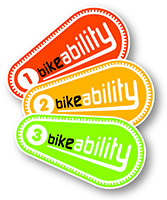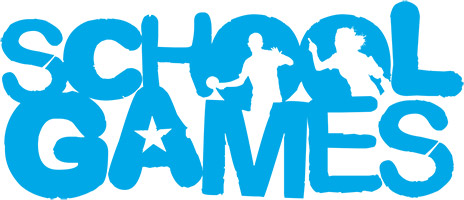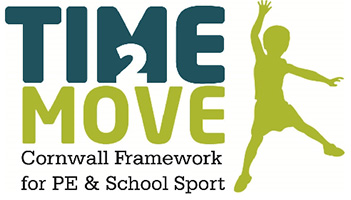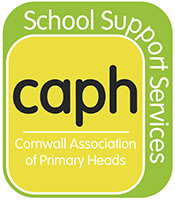DSSP Reframing Competition
Reframing Competition
The Dartmoor School Sport Partnership aims to remove the causes of negative experiences in sport for young people and to ensure that sport in our area is inclusive, accessible, and fun.
Studies from the YST from across the country identified that there was an over emphasis on competition in sport and that this is a challenge for some young people.
The Dartmoor School Sports Partnership has been evolving and adapting over the last few years so that we try to cater for all. We will continue to do this by providing some new alternative competition formats with the overarching aim of increasing young people’s participation in sport and physical. We wish to promote enjoyment regardless of youngsters’ level of ability and avoid negative/bad experience of competitive school sport.
These youtube vidoes captures how some young people feel about sport.
#ReframeCompetition How do you manage selection - YouTube
#ReframeCompetition If they don't play, do they feel part of the team - YouTube
Statistics
· 64% of young people admitted that they would be relieved, not bothered or happier, if competitive element was removed from sport. Chance to Shine (2018)
· 45% of girls agreed that sport was too competitive Youth Sport Trust and Women’s Sport & Fitness Foundation (2011) Changing the Game for Girls. Weblink.
· 50% of Girls & 70% of Boys like PE lessons when they are competitive Women in Sport (2017) Girls & Boys in School Sport (Girls Active)
· 30% of girls and 50% of boys indicated that ‘playing to win’ is one of the reasons they enjoy being active in school Youth Sport Trust (2018) Girls Active Stepping Up for Change Evaluation
· Girls are less likely to be motivated by competition than boys and this is particularly the case of girls who are less active Women in Sport (2017) Girls Active
· In 2016/17 76% of young people aged 5-15yrs had participated in competitive sport. This had decreased from 80% in 2011/12 Department for Digital, Culture, Media & Sport (2017) Taking Part Survey: England Child Report, 2016/17.
· Insight from young people suggest that they value other outcomes rather than just winning such as enjoyment, skill development, being with their friends and improving their health Youth sports Trust (2018)
Different ways we may look to change some of our events
Targetted groups
Active Devon together with the School Games Organisers sent out a questionnaire about feedback on the Devon School Games. We found that schools suggested very active pupils were catered for very well, however some other groups were less so. So next year our calendar will look to address this. We will be looking to target specific groups of pupils and students so that ALL can have access to the numerous events we provide in a setting that they can thrive. Groups will include events where we are specifically targeting the following,
- Children not usually selected for the first team
- Hidden child
- Children who are disengaged
- Low level disruptors
- Pupil premium
- Pupils with social and emotional difficulties
- Children with low activity levels
- Children with poor participation rates within PE
- Very active
We therefore would like schools to send the appropriate pupils to the appropriate events. As these will be specifically targeted towards the needs of these children.
During our events we will look to include some of the following so that all have a positive experience. Therefore, placing the same kudos on broader achievements as the traditional competition “winner” will be just as important.
Adapted scoring
· Adapted scoring is a simple adaptation that was found to be effective at engaging and motivating participants. So therefore, the Win/Draw/lose can be adapted so that winning isn’t the only way to score success.
Win = 2 points
Draw = 1.5 points
Lost = 1 point
Shot on target = 1 point
Save by the Goal Keeper = 1 point
Sportsmanship = 2 points
· ‘Moment of the match’ - bonus point is allocated in the game. This can be allocated by the referee to the team that demonstrated the most outstanding element of creativity. Again, this can be combined with the win/draw points to create an overall score.
· Basketball England has trialled the introduction of new regulations, which aim to give young people greater enjoyment from participating in competitions, along with more opportunities to develop their basketball skills. • They found that teams would often feel demoralised if the scoreboard showed a vast difference in points between the winning and losing teams. For the under 13 regional tournaments, each quarter of the game was treated as a new game, i.e. players played four individual games instead of one. The number of baskets for each quarter was not recorded on the scoreboard (only by the table officials) and at the end of each quarter, the teams were simply awarded three points for winning, two for a draw and one for losing. These points were shared on the scoreboard.
· Spirit of the games scoring board - using the School Games values to award points for teams, instead of or as well as having the win/draw/lose scoring system.
Poweplay
The Premier League offers Power Play tournaments. At random periods during a football match music will play. Within this time period any goals scored count as double. The idea is to offer an alternative format that enhances players enjoyment of the game. The music may act as a distraction and it requires an extra skill level to be able to continue to concentrate and communicate with team mates. We will look to include Point Power Plays to keep young people motivated.
We may also look to Include Player Power Plays where teams can bring on additional players if they are losing by a large margin.
Rotations
No one likes to sit on the bench during a game and watch their team-mates play the whole game without them. Rotations like High5netball may be introduced in other games so everyone gets equal time on the pitch. Or we may adopt a rule that reduces the amount of time a child is ‘sitting out’ e.g. 50% playing time.
Self-refereed games
By introducing some self-refereed games enables young people to develop skills such as conflict resolution, leadership, communication, teamwork and empathy.
• Scores for players displaying great values and fair play are celebrated alongside the results. Ensuring these scores are regarded as highly as the results.
• Players learn life skills whilst playing and by introducing concepts such as self-refereeing and spirit scoring enables the development of life skills to be an intended outcome
• Ultimate is a fast paced, non-contact team sport that is played with a flying disc (frisbee). The sport is refereed by the players themselves, even at World Championship level, according to a code of conduct known as ‘the Spirit of the Game’. It places the responsibility of fair play on the players themselves. Players are responsible for resolving conflicts amongst themselves, and if they are unable to agree they resume play in a manner which simulates what would most likely have occurred if there had been no breach. At the end of a game, teams also rate their opponents on ‘the spirit of the game’, which includes aspects such as being respectful, good communication, knowing the rules etc. In addition to celebrating the team that wins the most matches, the team with the highest score for ‘the spirit of the game’ is given equal status along with recognising individual players who have done something special.
Focus on health outcomes
Participants are motivated to take part in sport for health reasons. Certain young people who are inactive may need to focus more on the health outcomes of sport rather than winning and losing. Use of fitbits/heart rate monitors and pedometers can show the amount of effort a child is putting into their activity, or how far did they move or how many steps did they achieve, or how long can you stay in a heart rate zone.
Walking team games
Walking basketball is a walking paced version of the original basketball game, suitable for all ages and abilities. It was developed in the UK but has received global interest over recent years. An evaluation conducted by the University of Hertfordshire of walking basketball in Melbourne found participants were positive about the game, felt it was a good opportunity to have fun, socialise, improve health outcomes and provide mental stimulation.
Use of technology
Virtual competitions used during lockdown increased some groups activity levels considerably. Some targeted groups may benefit from virtual competitions.
Parkour Jam is an online platform that creates a community of participants. Individuals register on the site and then upload videos capturing their parkour/free running activities. Competitions are judged by the site users themselves and whilst opportunities to win prizes are included, the main focus of the video competitions is self-development and the opportunity to share knowledge and experience, rather than strictly competing. The competitions are separated into three categories: beginners, intermediates and advanced.
Partnership pathway events
We will of course be continuing to provide some events for active children who thrive on competition, with our partnership Learning Community competitions with winners going through to our partnership finals (Hi5Netball, Tag Rugby, Gymnastics, Handball, Athletics and Dartmoor3ball). We feel that children do need to experience winning and losing, however there will be other ways that children can gain success during these events as well.








